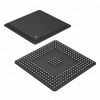FPGA: Features: • Second generation ASIC replacement technology - Densities as high as 5,292 logic cells with up to 200,000 system gates - Streamlined features based on Virtex architecture - Unlimit...
floor Price/Ceiling Price
- Part Number:
- FPGA
- Supply Ability:
- 5000
Price Break
- Qty
- 1~5000
- Unit Price
- Negotiable
- Processing time
- 15 Days
SeekIC Buyer Protection PLUS - newly updated for 2013!
- Escrow Protection.
- Guaranteed refunds.
- Secure payments.
- Learn more >>
Month Sales
268 Transactions
Payment Methods
All payment methods are secure and covered by SeekIC Buyer Protection PLUS.

 FPGA Data Sheet
FPGA Data Sheet






